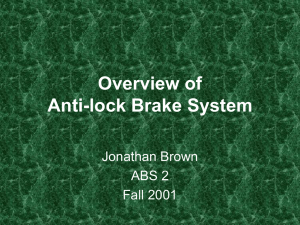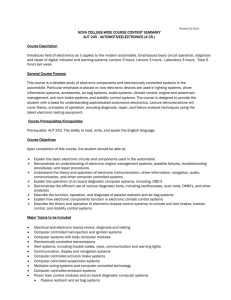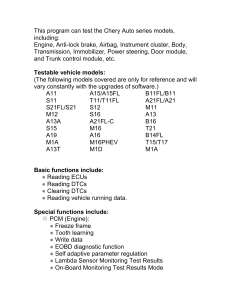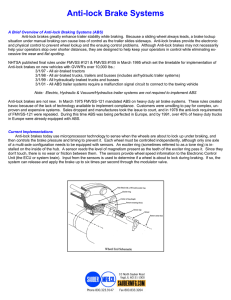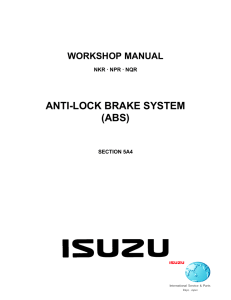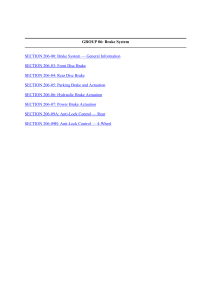Master Course Outline AUTO 112 Electrical/Electronics/ABS
advertisement
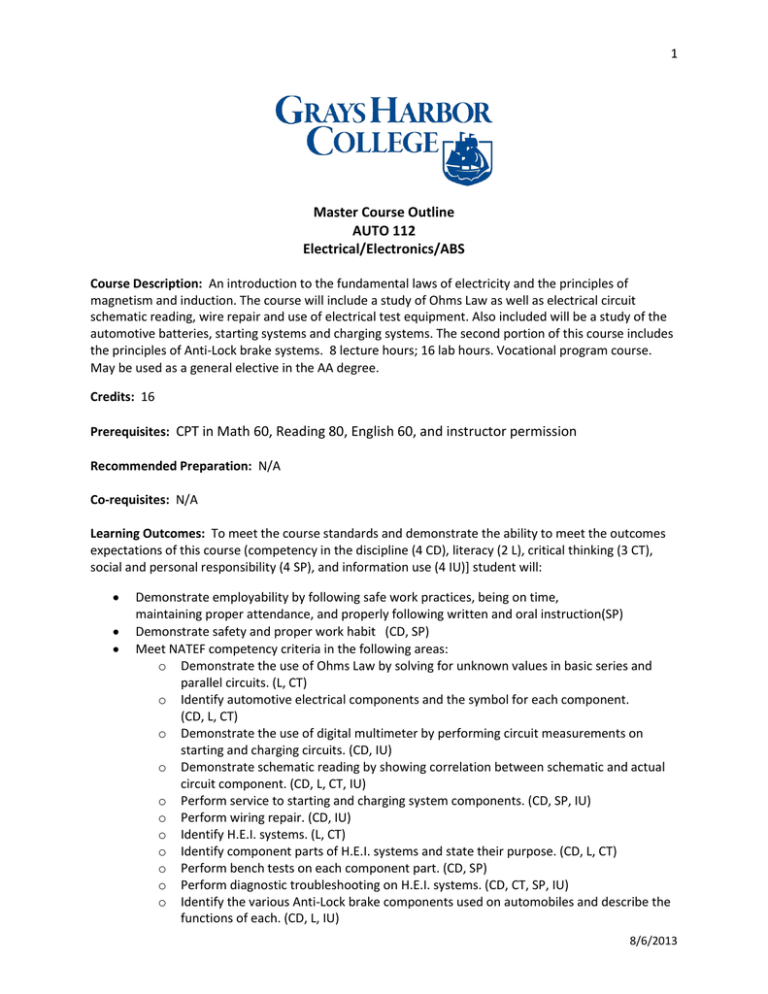
1 Master Course Outline AUTO 112 Electrical/Electronics/ABS Course Description: An introduction to the fundamental laws of electricity and the principles of magnetism and induction. The course will include a study of Ohms Law as well as electrical circuit schematic reading, wire repair and use of electrical test equipment. Also included will be a study of the automotive batteries, starting systems and charging systems. The second portion of this course includes the principles of Anti-Lock brake systems. 8 lecture hours; 16 lab hours. Vocational program course. May be used as a general elective in the AA degree. Credits: 16 Prerequisites: CPT in Math 60, Reading 80, English 60, and instructor permission Recommended Preparation: N/A Co-requisites: N/A Learning Outcomes: To meet the course standards and demonstrate the ability to meet the outcomes expectations of this course (competency in the discipline (4 CD), literacy (2 L), critical thinking (3 CT), social and personal responsibility (4 SP), and information use (4 IU)] student will: Demonstrate employability by following safe work practices, being on time, maintaining proper attendance, and properly following written and oral instruction(SP) Demonstrate safety and proper work habit (CD, SP) Meet NATEF competency criteria in the following areas: o Demonstrate the use of Ohms Law by solving for unknown values in basic series and parallel circuits. (L, CT) o Identify automotive electrical components and the symbol for each component. (CD, L, CT) o Demonstrate the use of digital multimeter by performing circuit measurements on starting and charging circuits. (CD, IU) o Demonstrate schematic reading by showing correlation between schematic and actual circuit component. (CD, L, CT, IU) o Perform service to starting and charging system components. (CD, SP, IU) o Perform wiring repair. (CD, IU) o Identify H.E.I. systems. (L, CT) o Identify component parts of H.E.I. systems and state their purpose. (CD, L, CT) o Perform bench tests on each component part. (CD, SP) o Perform diagnostic troubleshooting on H.E.I. systems. (CD, CT, SP, IU) o Identify the various Anti-Lock brake components used on automobiles and describe the functions of each. (CD, L, IU) 8/6/2013 2 o o o o Diagnose Anti-Lock brake component/system malfunctions. (CD, CT, SP, IU) Identify the special tools necessary to properly diagnose and repair Anti-Lock brake components/system malfunction(s). (CD, L) Demonstrate proper use of special tools in diagnosing and repairing ABS brake component malfunctions. (CD, CT, IU) Disassemble, clean, inspect, and measure all components of an ABS system following established service manual procedures. (CD, L, SP) Course Resources/Textbooks/Website: The student will provide, textbooks, notebook and composition book for journal, pencils, pens, colored markers as needed, personal hand tools (see required tool list), safety glasses (clear), and disposable work gloves. Note: The instructor will provide selections from service manuals and electronic service manuals, other handouts as required, and coveralls are supplied to all students (special lab fee). Academic Integrity: All forms of cheating, falsification, and plagiarism are against the rules of this course and of Grays Harbor College. Students who are unsure what constitutes academic dishonesty are responsible for asking the instructor for clarification. Instances of intentional academic dishonesty will be dealt with severely. Disabilities: Students who have documented disabilities that require accommodations in compliance with the Americans with Disabilities Act should contact the Disability Support Services coordinator as well as the instructor of the course in order to ensure that together we create an optimal environment for educational achievement. W Day, the final day to officially withdraw from a course, is the Thursday of the seventh week (Thursday of the fourth week for summer quarter). Students who do not withdraw by that date will receive the grades they have earned, regardless of whether they are attending the course or completing the work. Students who are considering withdrawal are strongly advised to consult with the instructor, advisor and financial aid prior to withdrawing. The only withdrawals allowed after W Day are complete withdrawals from all courses. 8/6/2013
